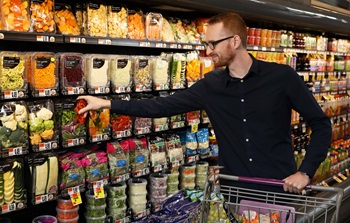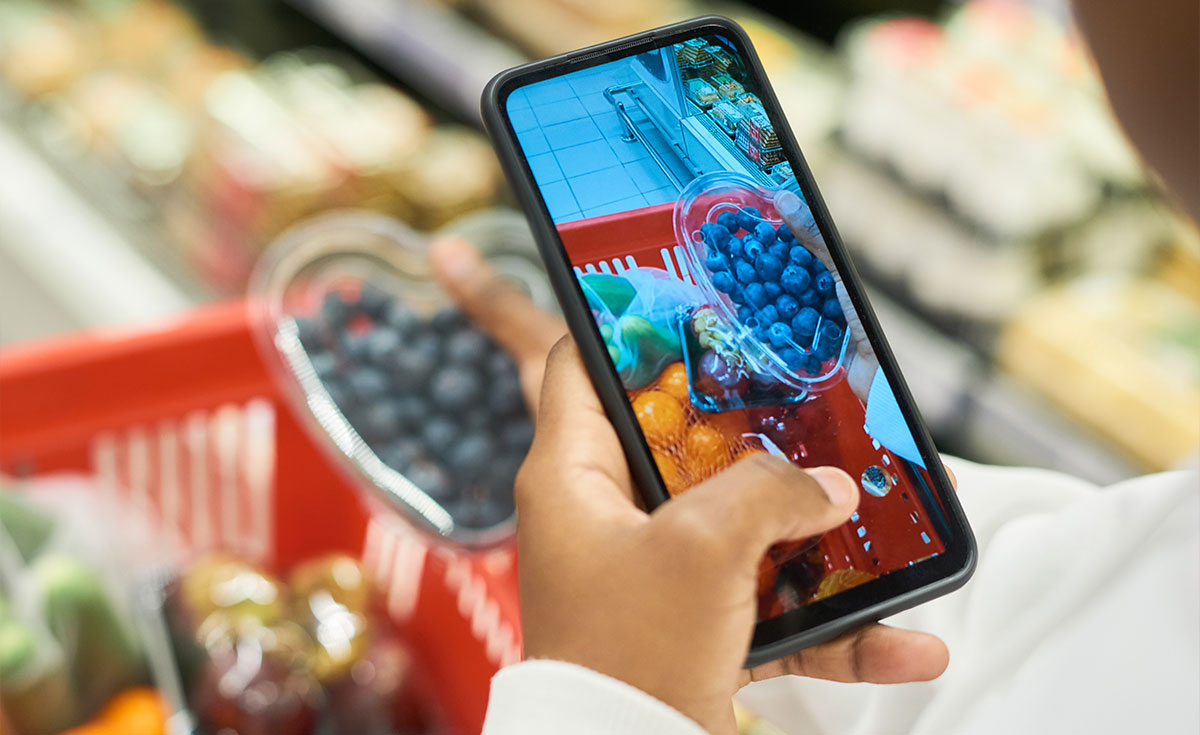By Rick Stein, Vice President of Fresh Foods, FMI

Holding a conference at a high-altitude location can help everyone see the big picture. FMI’s recent FreshForward conference in Denver, the Mile High City, sparked high-level insights from speakers to foster industry success.
I recently wrote that FreshForward featured special messages about fresh from three top retail leader presenters. I’m also very pleased that the forum included the inaugural presentation of new FMI research, an outlook from an esteemed economist, and a focus on three key fresh education tracks — collaborative partnerships, health and well-being and sustainability.
“Five to Thrive” for Collaborative Partnerships
Viewing the big picture is especially important for developing collaborative partnerships in fresh foods. Retailers seek partners because they can’t do everything in-house, but these collaborations need to be carefully considered to ensure good fits. Deloitte’s Mary Sawyer, ecosystems strategy and management Leader, outlined a very useful list of strategies called “Five to Thrive.” These include having a common goal; making sure value and ROI are mutually beneficial; setting clear expectations and roles; emphasizing frequent two-way communications and prioritizing trust and accountability. FMI is very pleased that Deloitte is our collaborative partner for FreshForward.
Health and Well-being in Fresh
Health-focused efforts — including Food as Medicine programs to help prevent health challenges — are important ways to drive success in fresh, according to speakers in a panel on this topic. They said the industry needs to better leverage data to understand the opportunities and success rates. “Health and well-being isn’t just about the pharmacy side,” said panelist Stacy Bates, director of wellness nutrition services, H-E-B. “Customers are now interested in it more broadly, and fresh is a big part of this.”
Sustainability in Fresh
Achieving success with sustainability relies on breaking down internal silos at retail and getting better quality data, said James Cascone, a Deloitte partner, who participated in a sustainability panel at FreshForward. Speakers emphasized the importance of enhancing visibility of retail inventory, making improvements to ordering processes and reducing food waste.
New Industry Research
FMI’s inaugural The State of Fresh Foods, presented at FreshForward, revealed the latest trends in areas including sales share, foodservice, ecommerce, shrink and space and labor allocation. This industry research found that about 40% of total online sales at food retail are now generated by the perimeter and fresh foods. However, a number of fresh departments still lag the total store in share of items sold online. Fresh departments can “seize an opportunity” for further progress, said speaker Mark Baum, FMI’s senior vice president, industry relations and chief collaboration cfficer.
The Economy and Business
Business leaders should be aware of the potential for recession but not become paralyzed by it. That was the view of Ira Kalish, chief global economist at Deloitte, who delivered an economic outlook presentation. “There is a risk of recession in the next year or two,” he said. “A recession would likely be relatively short-lived and relatively mild. So it makes sense to plan for recession but also plan for recovery, because it will come faster than you think and will last for several years.”
Powering the Fresh Industry
The fresh industry really benefits from the kinds of insights and guidance featured at FreshForward. A key example is Deloitte’s "Five to Thrive" presentation that I mentioned earlier. It provides a robust framework for improving how the fresh industry collaborates. FreshForward emphasizes collaboration because this is a great way for senior leaders to further their businesses. That’s an outcome we all want, whether we’re a mile high or close to sea level.


 Industry Topics address your specific area of expertise with resources, reports, events and more.
Industry Topics address your specific area of expertise with resources, reports, events and more.
 Our Research covers consumer behavior and retail operation benchmarks so you can make informed business decisions.
Our Research covers consumer behavior and retail operation benchmarks so you can make informed business decisions.
 Events and Education including online and in-person help you advance your food retail career.
Events and Education including online and in-person help you advance your food retail career.
 Food Safety training, resources and guidance that help you create a company food safety culture.
Food Safety training, resources and guidance that help you create a company food safety culture.
 Government Affairs work — federal and state — on the latest food industry policy, regulatory and legislative issues.
Government Affairs work — federal and state — on the latest food industry policy, regulatory and legislative issues.
 Get Involved. From industry awards to newsletters and committees, these resources help you take advantage of your membership.
Get Involved. From industry awards to newsletters and committees, these resources help you take advantage of your membership.
 Best practices, guidance documents, infographics, signage and more for the food industry on the COVID-19 pandemic.
Best practices, guidance documents, infographics, signage and more for the food industry on the COVID-19 pandemic.
